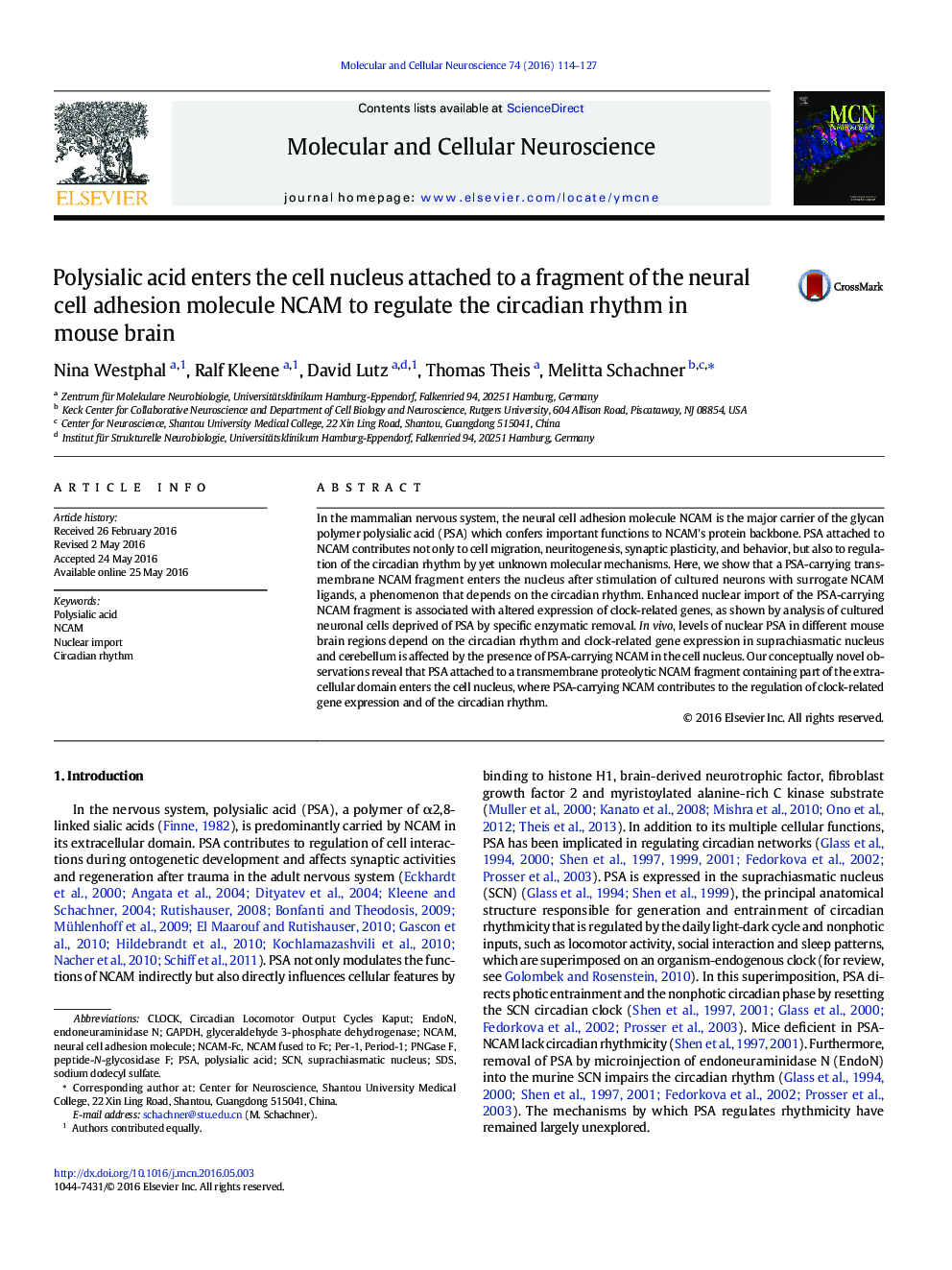| Article ID | Journal | Published Year | Pages | File Type |
|---|---|---|---|---|
| 8478482 | Molecular and Cellular Neuroscience | 2016 | 14 Pages |
Abstract
In the mammalian nervous system, the neural cell adhesion molecule NCAM is the major carrier of the glycan polymer polysialic acid (PSA) which confers important functions to NCAM's protein backbone. PSA attached to NCAM contributes not only to cell migration, neuritogenesis, synaptic plasticity, and behavior, but also to regulation of the circadian rhythm by yet unknown molecular mechanisms. Here, we show that a PSA-carrying transmembrane NCAM fragment enters the nucleus after stimulation of cultured neurons with surrogate NCAM ligands, a phenomenon that depends on the circadian rhythm. Enhanced nuclear import of the PSA-carrying NCAM fragment is associated with altered expression of clock-related genes, as shown by analysis of cultured neuronal cells deprived of PSA by specific enzymatic removal. In vivo, levels of nuclear PSA in different mouse brain regions depend on the circadian rhythm and clock-related gene expression in suprachiasmatic nucleus and cerebellum is affected by the presence of PSA-carrying NCAM in the cell nucleus. Our conceptually novel observations reveal that PSA attached to a transmembrane proteolytic NCAM fragment containing part of the extracellular domain enters the cell nucleus, where PSA-carrying NCAM contributes to the regulation of clock-related gene expression and of the circadian rhythm.
Keywords
Related Topics
Life Sciences
Biochemistry, Genetics and Molecular Biology
Cell Biology
Authors
Nina Westphal, Ralf Kleene, David Lutz, Thomas Theis, Melitta Schachner,
